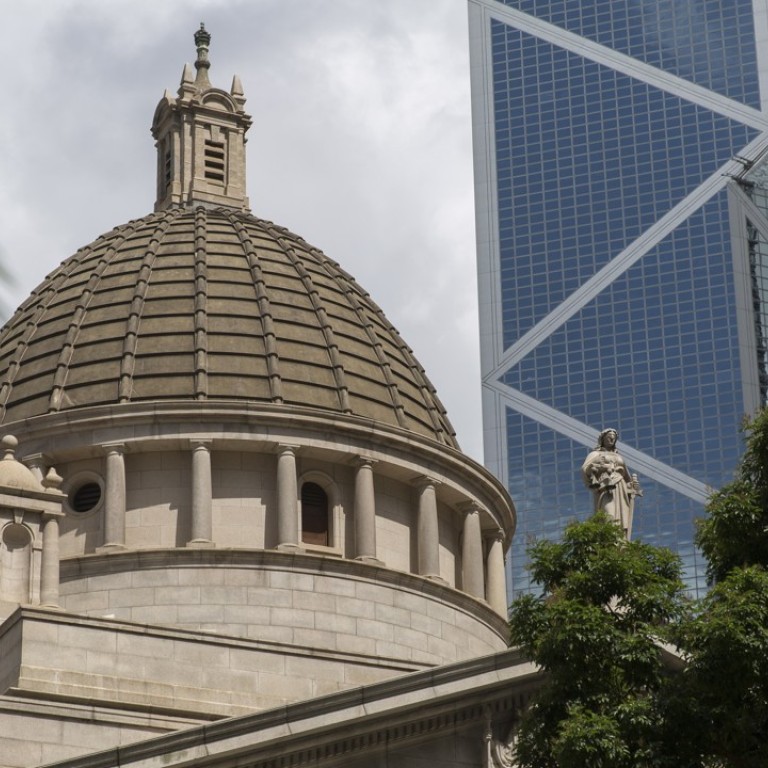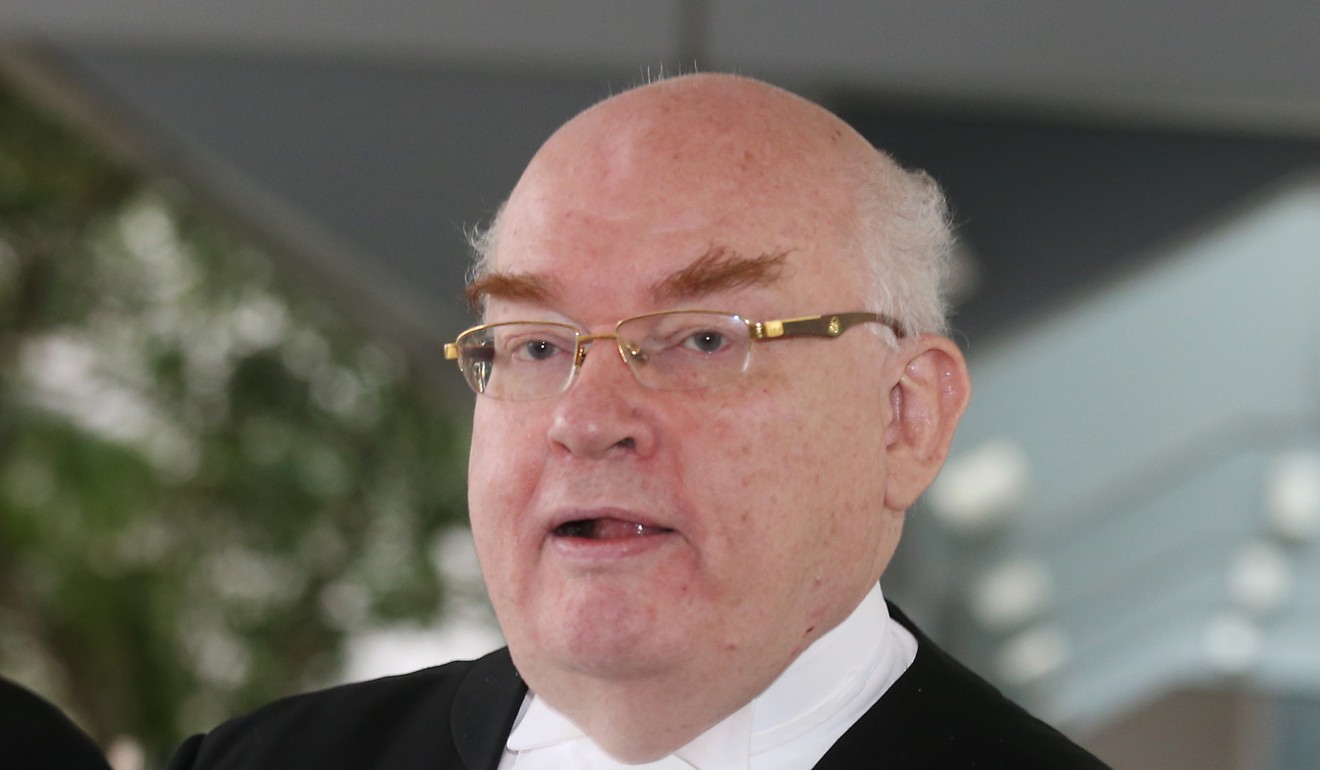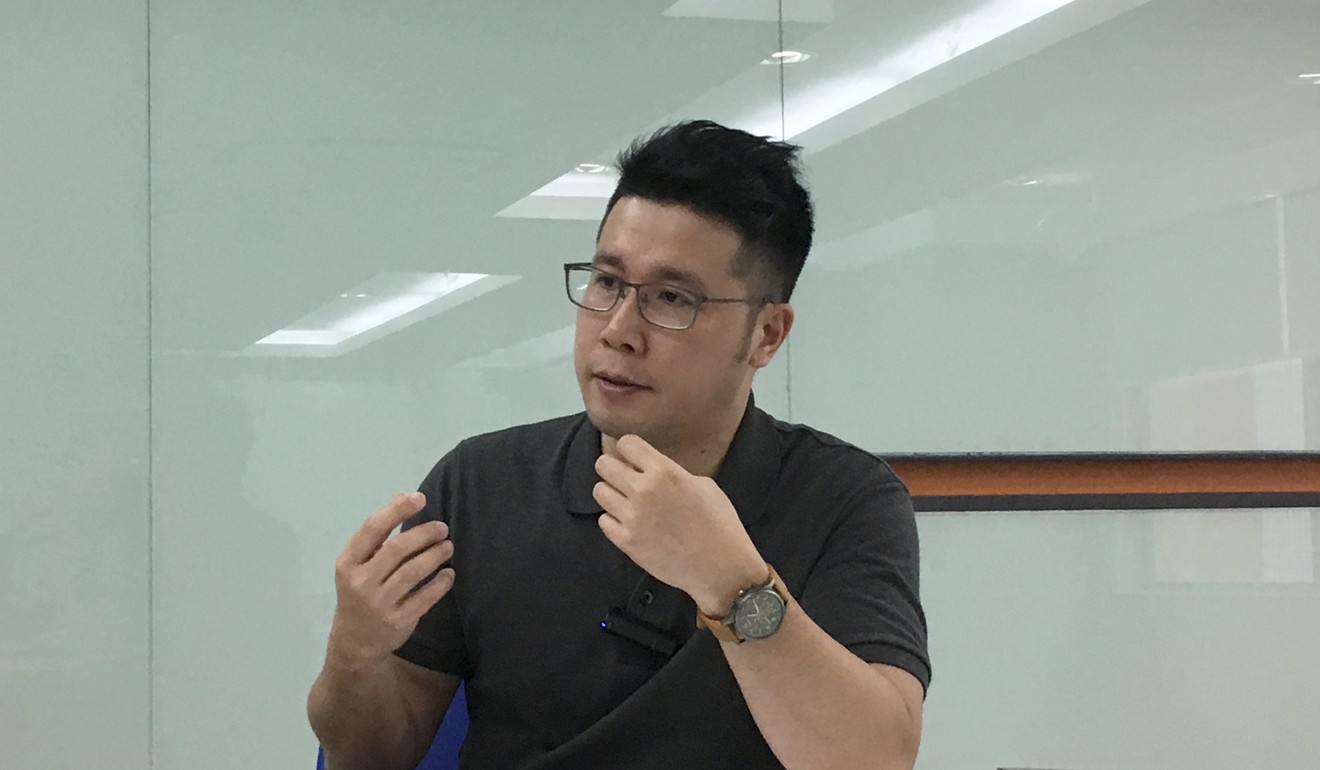
Decision on Hong Kong law used to tackle upskirting may not come until next year
A number of cases involving smartphone-related crimes were put on hold after the High Court ruled a widely used charge was being wrongly applied
Hong Kong’s Department of Justice may have to wait until early next year to know if it can continue to use an existing law to take action against those who have committed smartphone-related crimes including upskirting, after an earlier court ruling forced it to suspend such prosecutions.
The department earlier this month filed a challenge at the Court of Final Appeal, arguing against a lower court’s ruling that the offence of accessing a computer with dishonest intent – under Section 161 of the Crimes Ordinance – had been applied wrongly in the case of four schoolteachers.
While it has been tight-lipped about the number of cases in limbo, at least two upskirting cases have been adjourned for four months and in a third case the original charge under Section 161 has been dropped.
Hong Kong ‘needs law against upskirting’ after Department of Justice forced to suspend prosecution of smartphone crimes
The latest figures from the Security Bureau showed that in first three months of this year, 31 people were arrested for computer-related crimes, including upskirting offences.
On August 10, the High Court refused to convict the teachers who leaked exam questions by using their own smartphones to take and send images. It insisted the justice department’s prosecutors should prove there was “unauthorised extraction and use of information from the computer” in bringing a case under Section 161, rather than mere “use” of a computer or smartphone.
Lawmakers and human right groups questioned whether previous use of the same charge of “access to a computer with criminal or dishonest intent” exceeded the original purpose of the law and have asked for a comprehensive review of what it covers. Some believe the review should happen now, and not wait for the apex court decision.
Hong Kong police officer admits taking upskirt photos and videos – including 12 of his colleague inside the station
The appeal court has scheduled a 30-minute hearing on September 6 for the Justice Department to make its case.
If the appeal goes ahead, the full hearing may not happen until the first quarter of next year and it will then take more time before the final decision is known.
Statistics from the judiciary the showed the Court of Final Appeal needed 4.5 months on average in 2017 to commence a hearing on criminal cases. A Post analysis further showed that judges took on average 5.6 months from the hearing of a criminal appeal to handing down their decisions orally or in writing.
The department refused to respond to queries on whether it would apply to the apex court to expedite proceedings. The judiciary also would not comment.
The offence of accessing of a computer with criminal or dishonest intent was introduced in 1993 when the government argued the law covering thefts and fraud could not be extended to criminals who transferred or amended information held by computers.
Four Hong Kong primary teachers who leaked entry exam questions did not commit a crime, court rules
Former secretary for security Alistair Peter Asprey explained to the Legislative Council then that the offence was created to punish “access to a computer for acts preparatory [to] but falling short of the commission of a fraud”.
Unlike Britain’s earlier Computer Misuse Act 1990, which Hong Kong heavily drew reference from, the Hong Kong law did not require the prosecution to prove the offender made “unauthorised access” to a computer.
The government explained to lawmakers that access with criminal intent is a serious offence, while the separate offence of unauthorised access was only created “to protect the privacy of a legitimate user”.
So in Hong Kong, if a computer was used at any stage of committing a crime, Section 161 could be applied or added to a separate charge of fraud or even corruption. The courts later agreed that smartphones fell under the category of computers, where offenders face a maximum of five years’ jail time.
Man, 39, arrested for taking upskirt photos of Hong Kong schoolgirls
The law has been used regularly to prosecute upskirting, which is not considered a sex crime by law and can be charged under loitering or acts of outraging public decency.
Philip Dykes SC, chairman of the Hong Kong Bar Association, said Section 161 had been used so broadly that it now appears to be “a legal hand grenade” that require safeguards such as the need to prove “unauthorised access”, like in Britain.

Pointing out a flaw in its application, he said if someone uses a conventional camera for taking upskirt pictures, he cannot be charged under Section 161 simply because a smartphone was not used.
“If I was the government, I’d take a long hard look at the statute, and if you think it’s not doing its job, go to the Legislative Council and ask them for what you want,” Dykes said.
He added Hong Kong should also consider dedicated legislation to deal with upskirting as in Scotland and New Zealand, a move that the Law Society also supports.
Icarus Wong Ho-yin, a member of NGO the Civil Rights Observer, said the “catch-all” feature of Section 161 was open for abuse whenever a smartphone is involved.

“Police could first arrest a person under Section 161 and investigate the contents of the computer or smartphone for evidence of wrongdoing,” said Wong, warning it could threaten the right to freedom of expression.
Together with legal sector lawmaker Dennis Kwok and IT sector lawmaker Charles Mok, Wong has demanded to meet the director of public prosecutions to push for an earlier review of the law. He said all prosecutions under Section 161 should be reviewed by the head or deputy of prosecution.
Pro-establishment lawmaker Paul Tse Wai-chun also weighed in, saying that the justice department should not wait until the outcome of the appeal to review the problematic Section 161.
“When the law was passed in 1993, the government had promised a review two years afterwards, but it never came,” Tse said.

